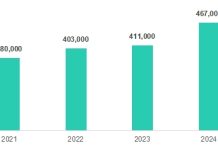Recently, it has been revealed that up to 5,000 firms have borrowed up to S$4.5 billion from government-assisted schemes over the past few weeks in order to strengthen their defences against the impact of the COVID-19 pandemic.
Several companies have notified The Straits Times that they are utilising these financial aid funds to meet short-term costs such as rent and wages, while other businesses are putting more emphasis on the future and recovery of the company post-COVID-19. The majority of these companies that are taking out loans are SMEs with less than S$10 million in annual revenue.
The Government is taking a 90 percent risk share on loans under schemes overseen by Enterprise Singapore (ESG), such as the SME Working Capital Loan and the Temporary Bridging Loan Programme (TBLP) until 31 March next year.
DBS Bank said that about 80 percent of its loans are to SMEs, with around half of them having no prior borrowing history with the bank. It has approved more than 3,500 loans amounting to around S$1.1 billion to such companies under the ESG schemes, with the average borrowing amount at S$250,000.
On the other hand, OCBC bank has stated that it expects to disburse about S$1 billion of loans under the ESG schemes by the end of June. Both OCBC and United Overseas Bank (UOB) have noticed that the vast majority of loan applications for relief funds were processed under the TBLP; given the larger amount available under the scheme, up to S$5 million compared with the SME Working Capital Loan’s S$1 million maximum. As for the average loan amount, it is about S$2 million among mid-size firms and around S$300,00 for smaller businesses, said UOB.














